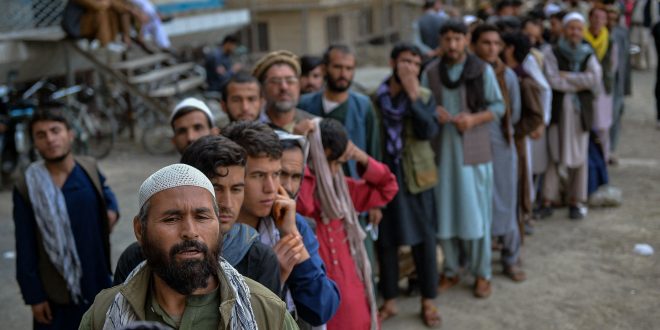AT News
KABUL – The latest findings from the U.S. Special Inspector General for Afghanistan Reconstruction (SIGAR) reveal that, since August 2021, the United Nations has channeled a minimum of $2.9 billion into Afghanistan, backed by contributions from international donors. The United States, as the primary contributor, has contributed around $2.6 billion during this period, supporting the UN, various private international organizations (PIOs), and non-governmental organizations (NGOs) operating in Afghanistan.
Of the U.S. funding, more than $1.7 billion, sourced from the State Department and the U.S. Agency for International Development (USAID), was directed towards humanitarian initiatives by PIOs and NGOs, including the UN, the World Bank, and the Colombo Plan, according to SIGAR. However, the report highlights challenges in tracking individual donor allocations within collective UN accounts.
Following the collapse of Afghanistan’s republic government in August 2021, international reluctance to engage with the country’s banking sector increased due to concerns about sanctions violations and inadvertent support for the Taliban. The U.S. Department of the Treasury blocked Afghanistan’s central bank, Da Afghanistan Bank (DAB), from accessing its U.S.-held assets. This, coupled with the suspension of funding and programs by international donors and aid groups, triggered severe economic and humanitarian crises in Afghanistan.
By early 2022, international donors and the UN agreed to resume assistance, prompting the UN, in collaboration with the State Department and the Treasury, to physically transport U.S. currency to Afghanistan for operational and humanitarian expenses. SIGAR’s investigation highlights the UN as the exclusive entity handling cash procurement and transportation for humanitarian aid in Afghanistan.
The UN initiated cash transfers in December 2021, funding 19 of its entities, funds, and programs, along with 48 PIOs and NGOs, including the World Bank and the Asian Development Bank. Cash purchases, totaling at least 80, are conducted for Afghan delivery, given the challenges in international wire transfers and the scarcity of domestic currency. The UN acquires U.S. currency from the Federal Reserve Bank of New York and utilizes a transport company for delivery to Kabul. Upon arrival, the money is inspected, counted, and deposited in a private Afghan bank before distribution to various PIOs and NGOs.
SIGAR highlights the UN’s expectation of continuing these cash transfers until improvements are made in Afghanistan’s banking sector. However, concerns are raised about indirect benefits to the Taliban, as private banks often acquire local currency from the Taliban-controlled DAB when conversion to the local currency is necessary.
The SIGAR report underwent review by the State Department, USAID, and the Treasury. The State Department clarified aspects of Afghanistan’s banking sector, USAID expressed gratitude for the review, and the Treasury had no formal comments. SIGAR updated the report based on feedback from these agencies.
 Afghanistan Times
Afghanistan Times




